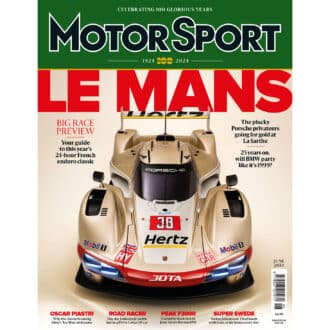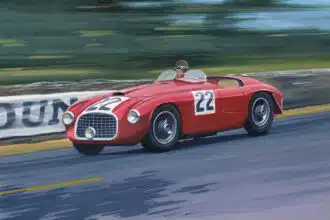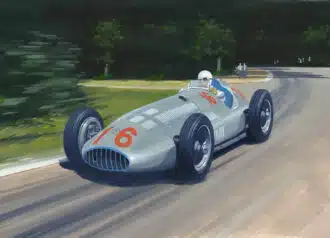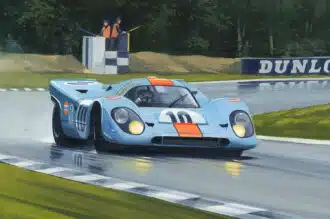
Racing at the Movies: Posters and artwork
Works of Art - Gallery
Safe to say that our continental correspondent, Denis Jenkinson, wasn’t all that impressed with the 1970 Le Mans 24 Hours, but little did he know at the time that this race would be looked back upon as the moment of ascention for one of the all-time great racing cars. Porsche’s 917 had already been around for a year by the start of this race, but some catastrophic failings from its first Le Mans outing in 1969 – the cars were superior in terms of pace, but a combination of gearbox issues, oil leaks and terrible accidents meant none of the three entered made it to the finish – forced Porsche back to the drawing board for 1970.
The 917 was notorious during its early life for its rather wayward handling, caused mostly by lift of the nose at speed, due to an aerodynamic imbalance. After some testing with British team boss John Wyer, this was cured by the introduction of two new rear bodywork configurations. The 917K, which featured a completely remodelled rear deck called the kurzheck (German for short-tail). Porsche also hedged its bets by running some 917s in LH (or langheck, for long-tail) spec. In total, there would be nine 917s on the grid for this race – some running 4.5-litre engines, other upgraded to five litres – three times as many as the previous year. But even then, Porsche wasn’t guaranteed the glory. Ferrari provided the sternest opposition, bringing 11 of its new 512 sports-racers to the field. This race would be a head-to-head thrash between the two giants, even if history records that it actually went down as a rather damp squib.
Rather, it was a drenched squib, as heavy and persistent rain led to it being one of the wettest Le Mans races ever. The conditions were so treacherous that by the finish, only seven of the 51 starters were classified.



